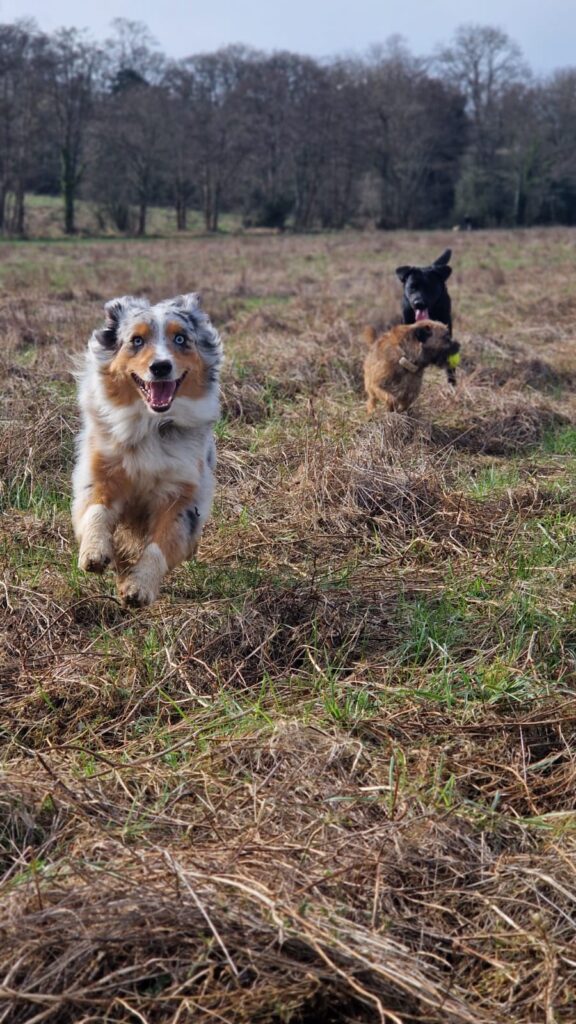There’s no doubt about it; the UK is a nation of animal lovers, with the most beloved pet being… why, man’s (and woman’s, and enby’s) best friend of course! Dogs are unwaveringly loyal and intuitive, they bring so much joy into our lives, offering companionship through the deep bonds we form with them. Which is why it’s important to be aware of the laws that govern their care and behaviour. There are five key laws that every dog owner should know about to ensure they are meeting their legal obligations and keeping their furry friends safe.
1. Microchipping of Dogs (England) Regulations 2015, Microchipping of Dogs (Wales) Regulations 2015

Firstly, all dogs must be microchipped by the time they are eight weeks old. A microchip is a small electronic device that is implanted under the skin of a dog, typically between the shoulder blades. This chip contains a unique identification number that can be scanned by a special reader – you can purchase a reader yourself, but any veterinary office will have them as well as local groups that aim to reunite lost dogs with their humans.
Microchipping provides a permanent form of identification for your dog, which can help reunite you with your furry friend if they ever get lost or stolen. It is a safe and relatively painless procedure for dogs. The chip itself is about the size of a grain of rice and can be inserted quickly by a veterinarian. A small price to pay for peace of mind for you and your pup!
Find out more about microchipping here
2. Control of Dogs Order 1992

Secondly, and along the same lines as the first point, dogs must wear a collar with an identification tag displaying the owner’s name and address whilst in public. A collar serves as a form of identification in case your dog gets lost. With their name and contact information attached to the collar, it increases the chances of them being reunited with you quickly. Collars can also be used to display important medical information such as vaccination tags or allergy alerts. This ensures that your dog receives proper care in case of an emergency.
Find out more about collars and ID tags here
3. Dangerous Dogs Act 1991

This law receives a lot of attention for its breed specification sections, however, section 3 covers any and all dogs that are ‘dangerously out of control’ in a public place, which includes aggressive behaviour towards people or other animals – whether your dog is a Chihuahua or Great Dane! There are several ways to ensure that your dog behaves appropriately in public. Training and socialisation are key factors in teaching your dog how to behave around other people and animals. Keeping your dog on a lead and using commands such as “sit” and “stay” can also help prevent any unwanted behaviour.
Find out more about the DDA here
4. Animal Welfare Act 2006

Perhaps the most important piece of legislation governing the treatment of companion animals is the Animal Welfare Act 2006. Section 9 of the act specifically focuses on the duty of care that individuals have towards animals in their possession. This section states that it is an offence to cause unnecessary suffering to an animal, fail to provide for their basic needs, or fail to protect them from pain, injury, suffering, or disease. Section 9 also outlines specific requirements for the care and treatment of animals, including providing them with adequate food and water, shelter, and veterinary care when needed. It is important for individuals to understand and adhere to these regulations in order to ensure the well-being of animals under their care.
Find out more about your responsibilities as a dog owner here
5. Environmental Protection Act (1990), Litter (Animal Droppings) Order 1991; Anti-social Behaviour, Crime and Policing Act 2014, The Countryside Code

Owners must clean up after their dogs in public spaces to prevent fouling offences. The laws require dog owners to clean up after their pets when they defecate in public areas, such as parks, sidewalks, and beaches. Failure to do so can result in a fine of up to £1000.
These laws were put in place to protect public health and prevent the spread of diseases that can be transmitted through dog faeces. Dog waste contains harmful bacteria and parasites that can pose a threat to humans, especially children who are more susceptible to infections.
Find out more about these laws here

